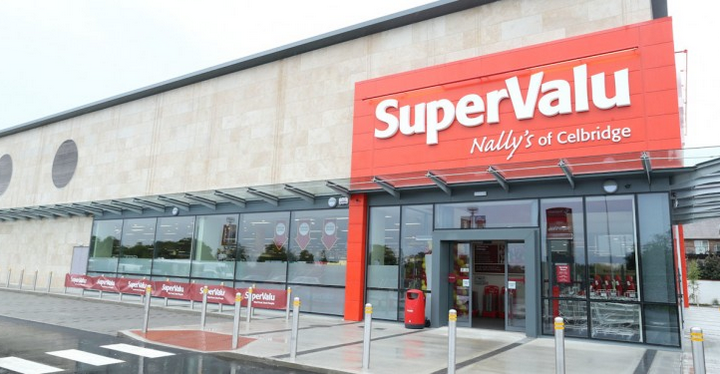SuperValu narrowly remains the country’s favourite grocery store – but faces mounting pressure from UK rival Tesco, according to the latest report from Kantar Worldpanel.
Sales increased by 2.5% at Supervalu for the 12-week period ending June 18, which was significantly short of Tesco’s growth of 3.8% over the same period, the figures showed.
Dunnes Stores came in at third position with a market share of 21.6% after impressive growth of 4.5% for the three-month period. This was attributed to existing customers shopping more frequently and spending an additional 10% on average, despite a drop in shopper numbers.
Although price deflation remained constant at -0.2% over the period, this was offset by an increase in the overall value of sales of 4.6%. In total, the grocery sector grew by 3.5% – or €80 million – over the 12-week period.
Kantar Worldpanel Director for Consumer Insight, Cora Campbell, said: “While average pack prices are down, shoppers are choosing to take advantage of this recent period of deflation by adding more items to their baskets per trip, driving the market’s overall growth.
“In the face of continuing competition, the major retailers’ investment in developing and improving their own brand lines is paying off. Overall sales of private label goods are up by 4.2% and they now account for 54% of grocery spend – the highest proportion since March this year.
SuperValu can’t remain complacent. Second place retailer Tesco is growing ahead of the market at 3.5%, and has closed the gap in share between itself and SuperValu to just 0.2 percentage points.
“With the battle for the top spot hotly contested over recent years and only 0.7 percentage points separating the top three retailers, there can’t be any guarantees that you’ll stay in position.”
Meanwhile, Aldi experienced growth of 3.7% to retain a market share of 11.7%, while Lidl saw growth of 3.3% to hold its market share at 11.2%. Last week, the German retailers issued a recall of their meat-free mince products over fears they may contain pieces of blue plastic.
